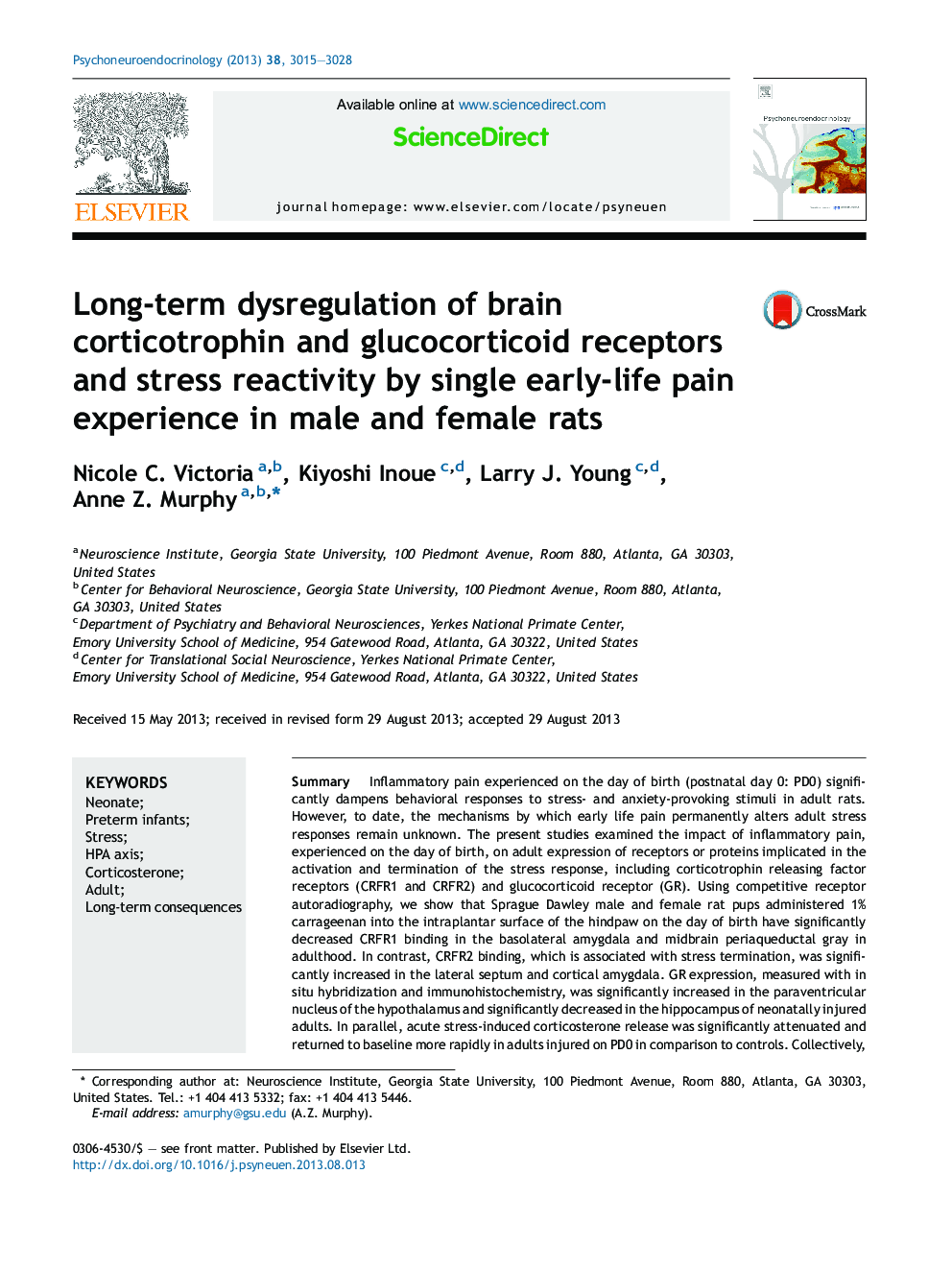| Article ID | Journal | Published Year | Pages | File Type |
|---|---|---|---|---|
| 10305765 | Psychoneuroendocrinology | 2013 | 14 Pages |
Abstract
Inflammatory pain experienced on the day of birth (postnatal day 0: PD0) significantly dampens behavioral responses to stress- and anxiety-provoking stimuli in adult rats. However, to date, the mechanisms by which early life pain permanently alters adult stress responses remain unknown. The present studies examined the impact of inflammatory pain, experienced on the day of birth, on adult expression of receptors or proteins implicated in the activation and termination of the stress response, including corticotrophin releasing factor receptors (CRFR1 and CRFR2) and glucocorticoid receptor (GR). Using competitive receptor autoradiography, we show that Sprague Dawley male and female rat pups administered 1% carrageenan into the intraplantar surface of the hindpaw on the day of birth have significantly decreased CRFR1 binding in the basolateral amygdala and midbrain periaqueductal gray in adulthood. In contrast, CRFR2 binding, which is associated with stress termination, was significantly increased in the lateral septum and cortical amygdala. GR expression, measured with in situ hybridization and immunohistochemistry, was significantly increased in the paraventricular nucleus of the hypothalamus and significantly decreased in the hippocampus of neonatally injured adults. In parallel, acute stress-induced corticosterone release was significantly attenuated and returned to baseline more rapidly in adults injured on PD0 in comparison to controls. Collectively, these data show that early life pain alters neural circuits that regulate responses to and neuroendocrine recovery from stress, and suggest that pain experienced by infants in the Neonatal Intensive Care Unit may permanently alter future responses to anxiety- and stress-provoking stimuli.
Related Topics
Life Sciences
Biochemistry, Genetics and Molecular Biology
Endocrinology
Authors
Nicole C. Victoria, Kiyoshi Inoue, Larry J. Young, Anne Z. Murphy,
